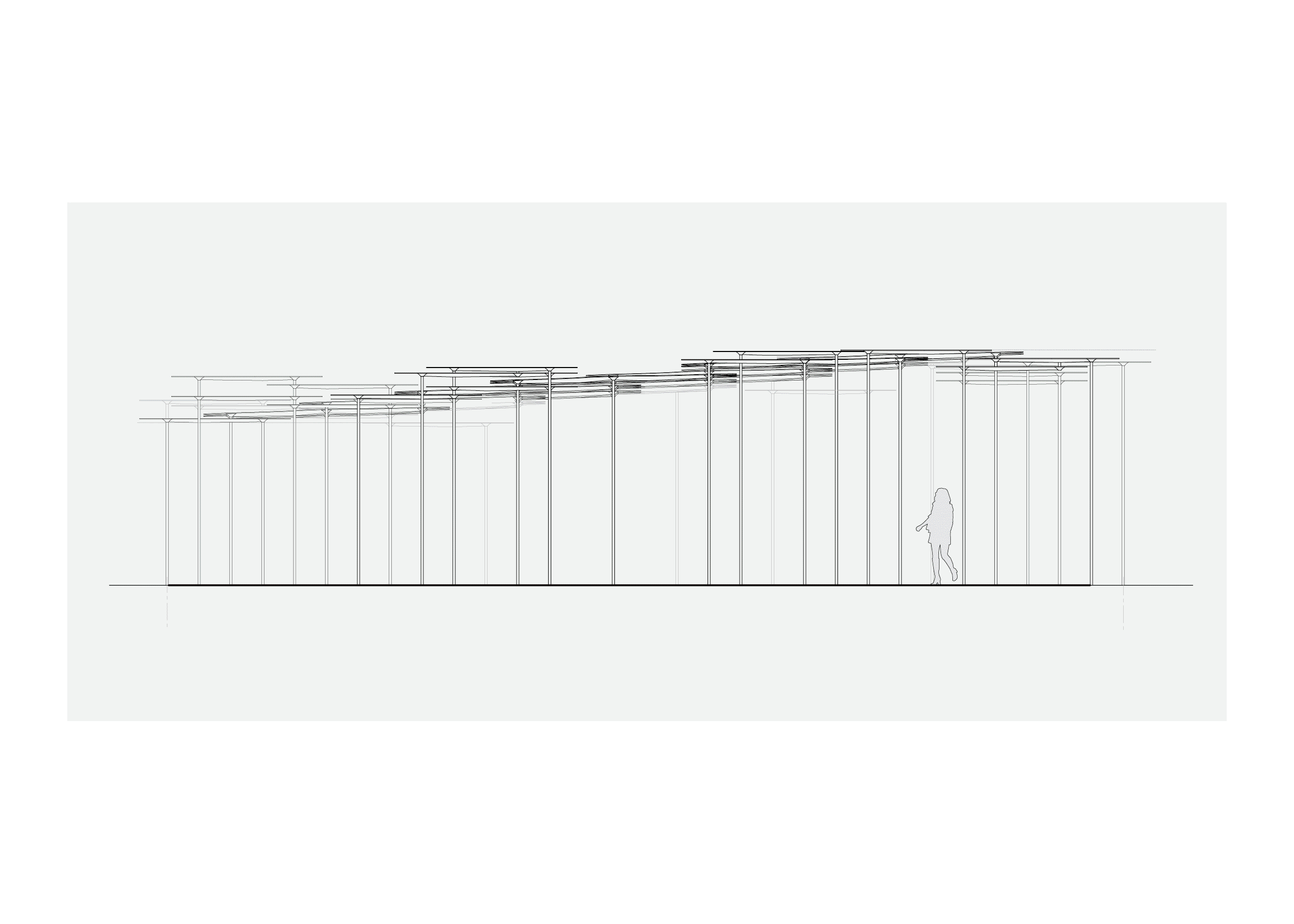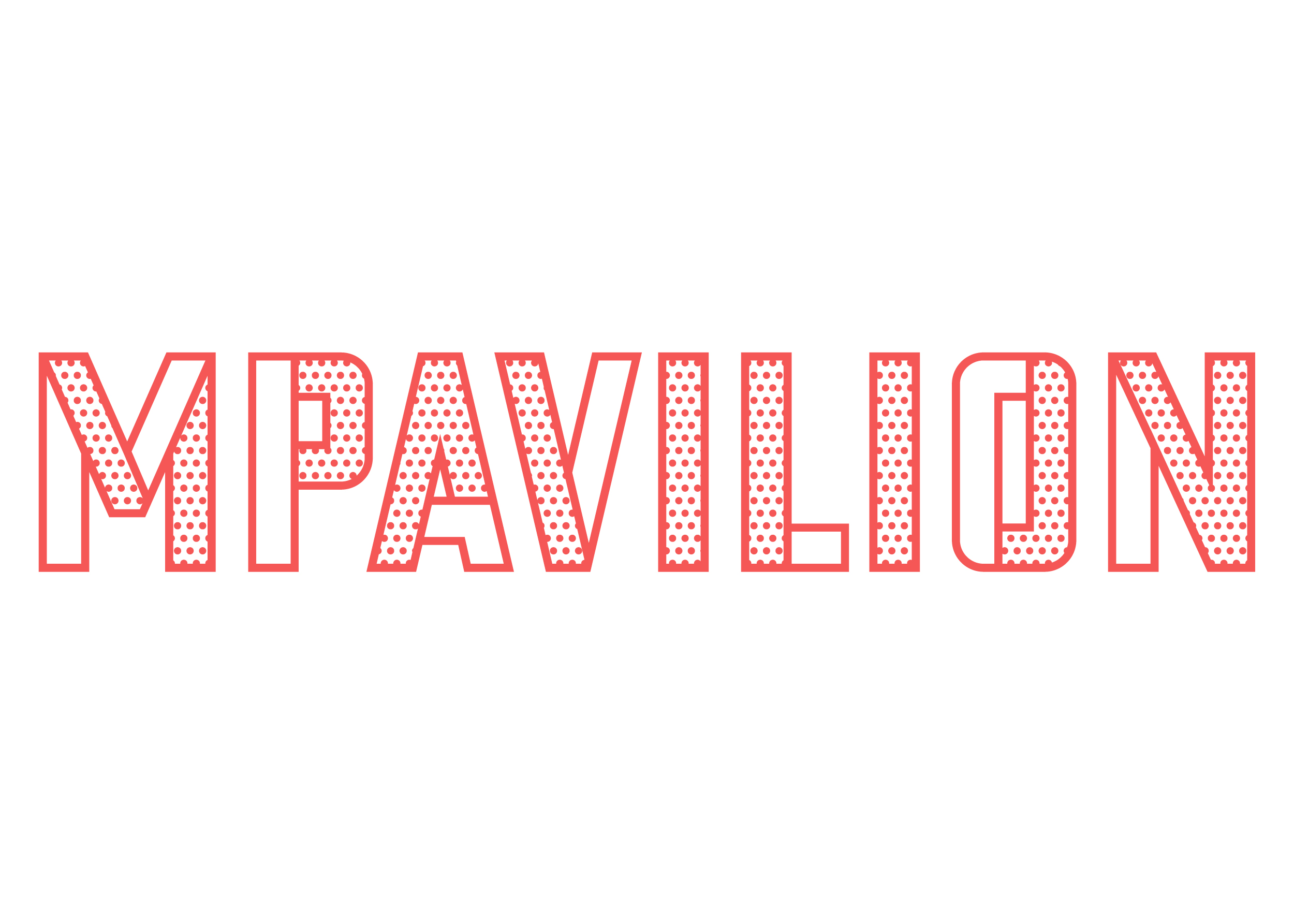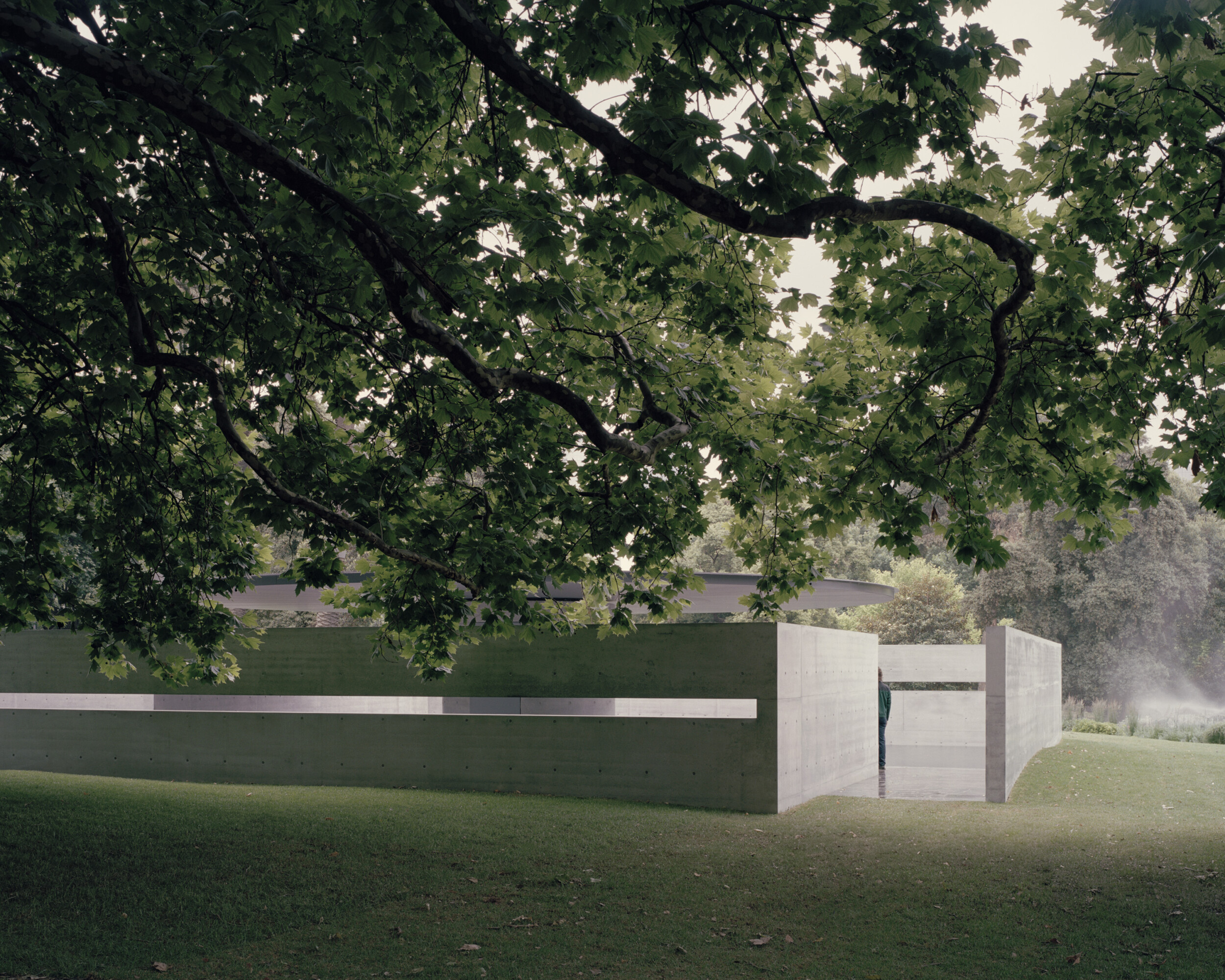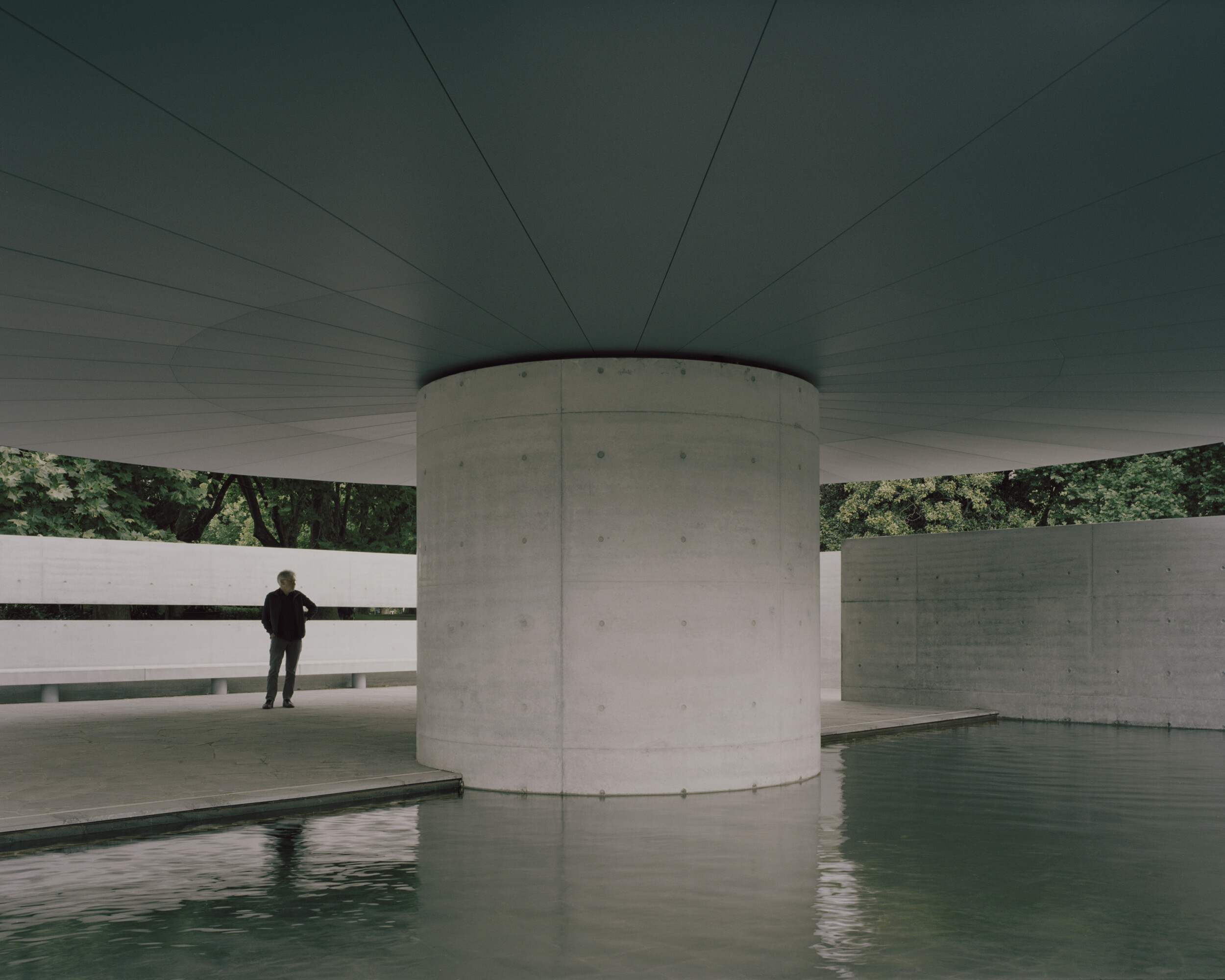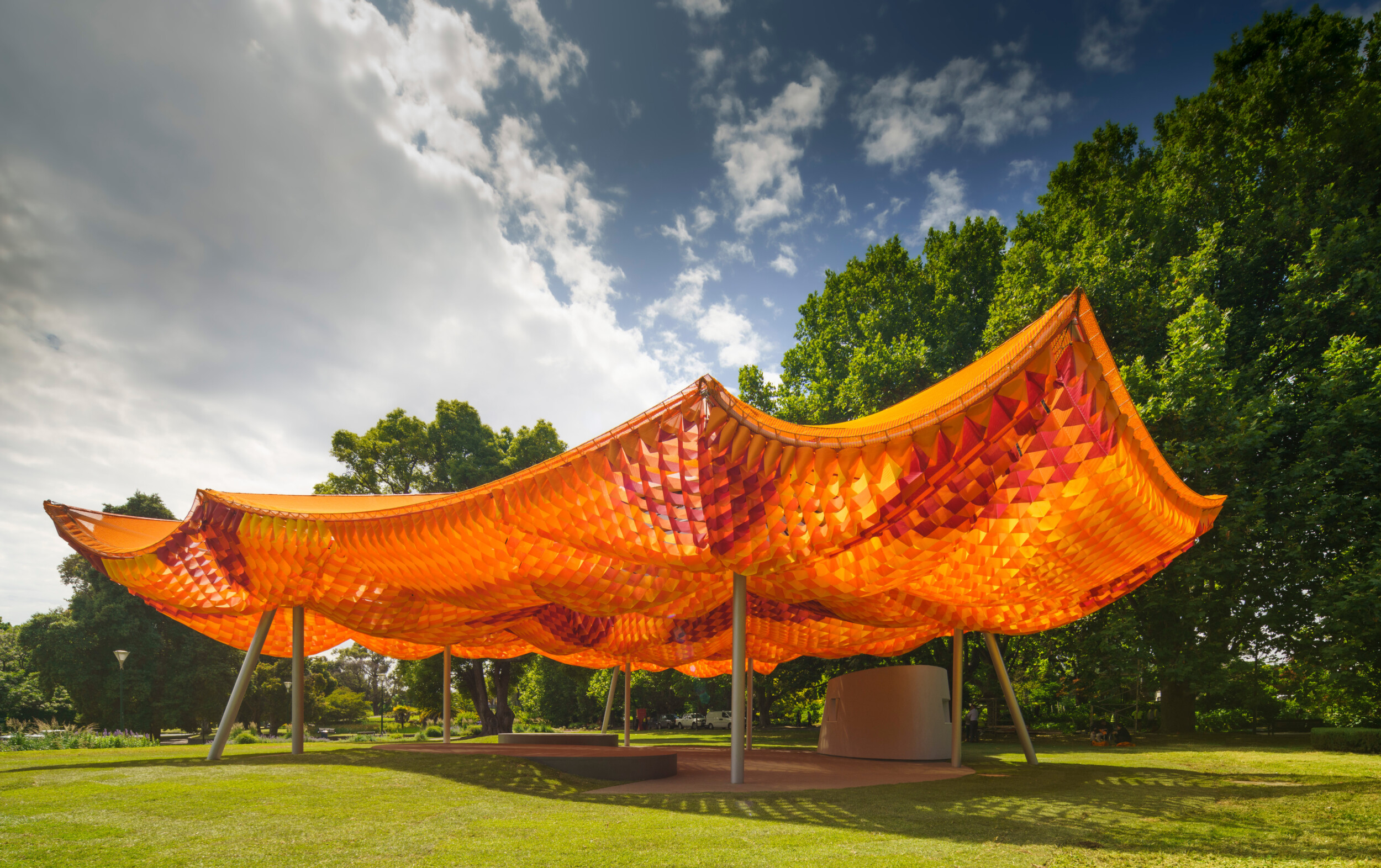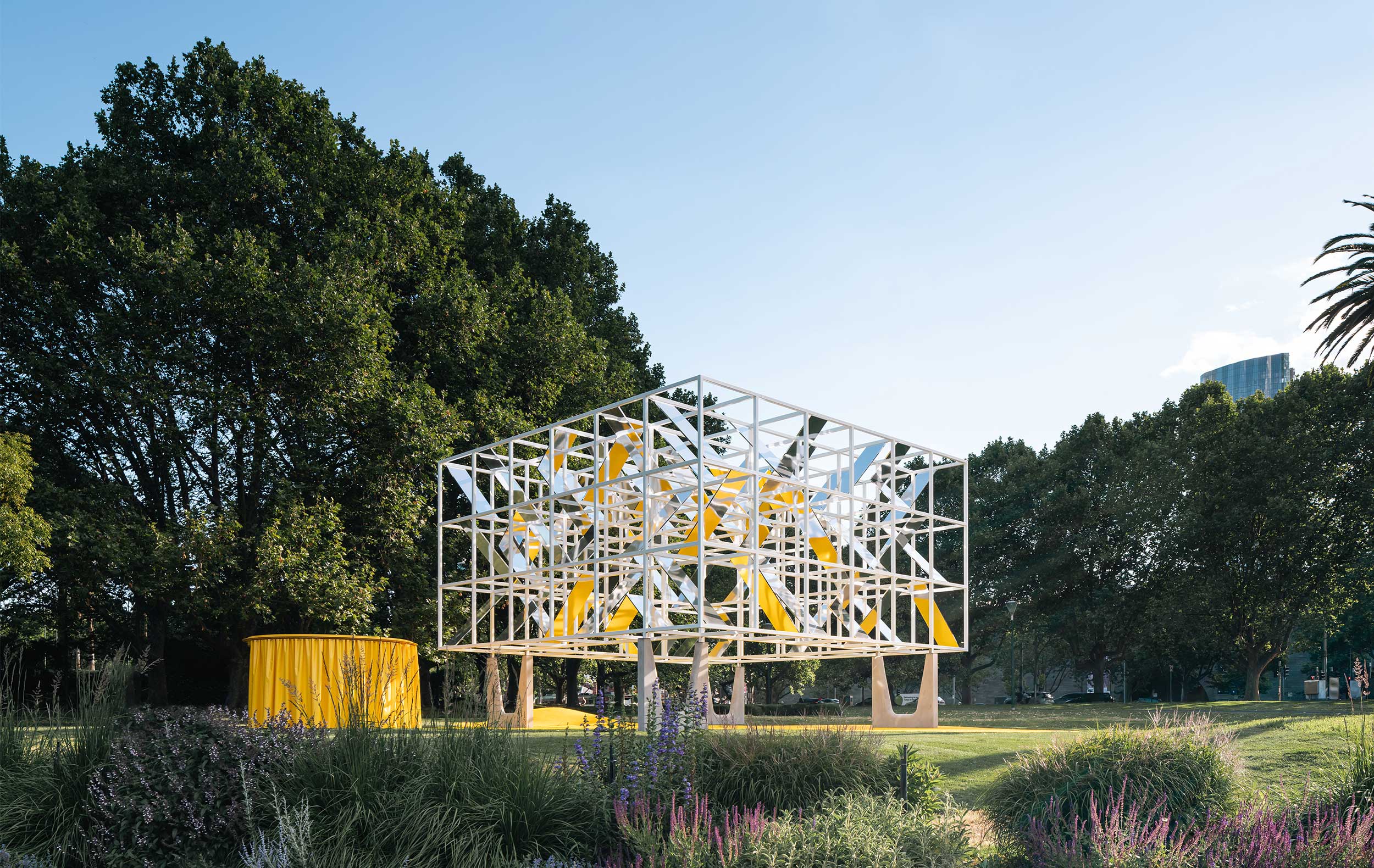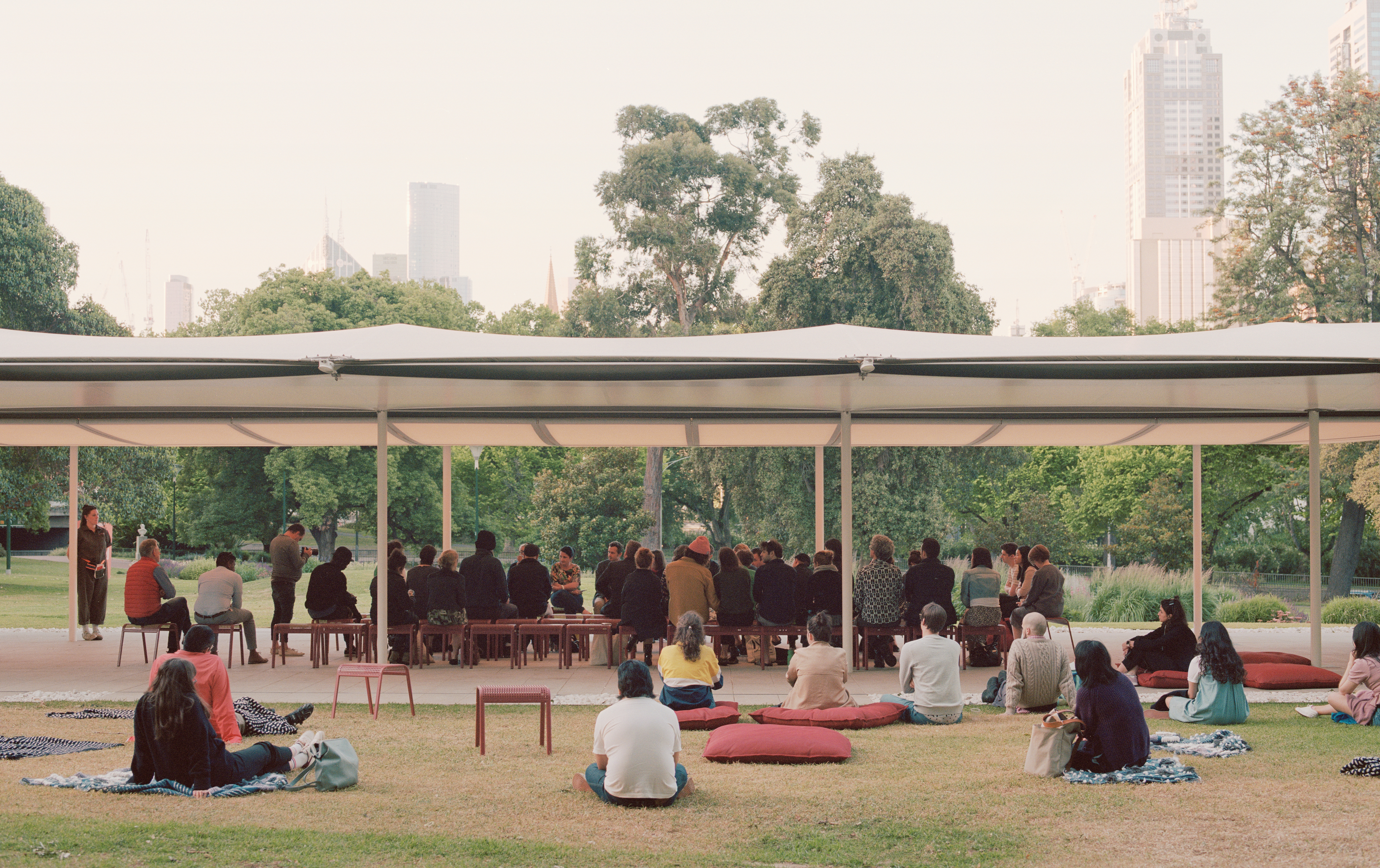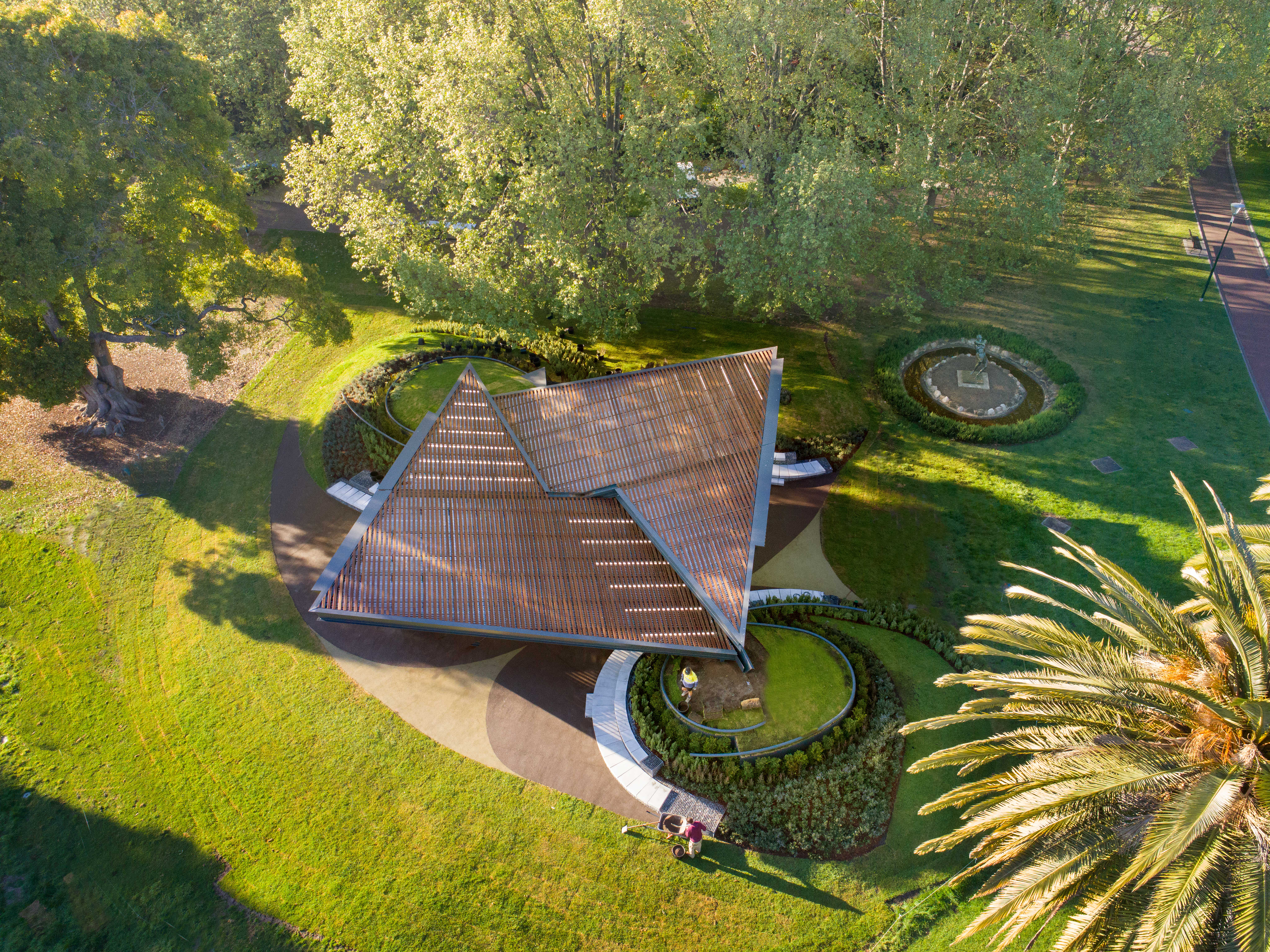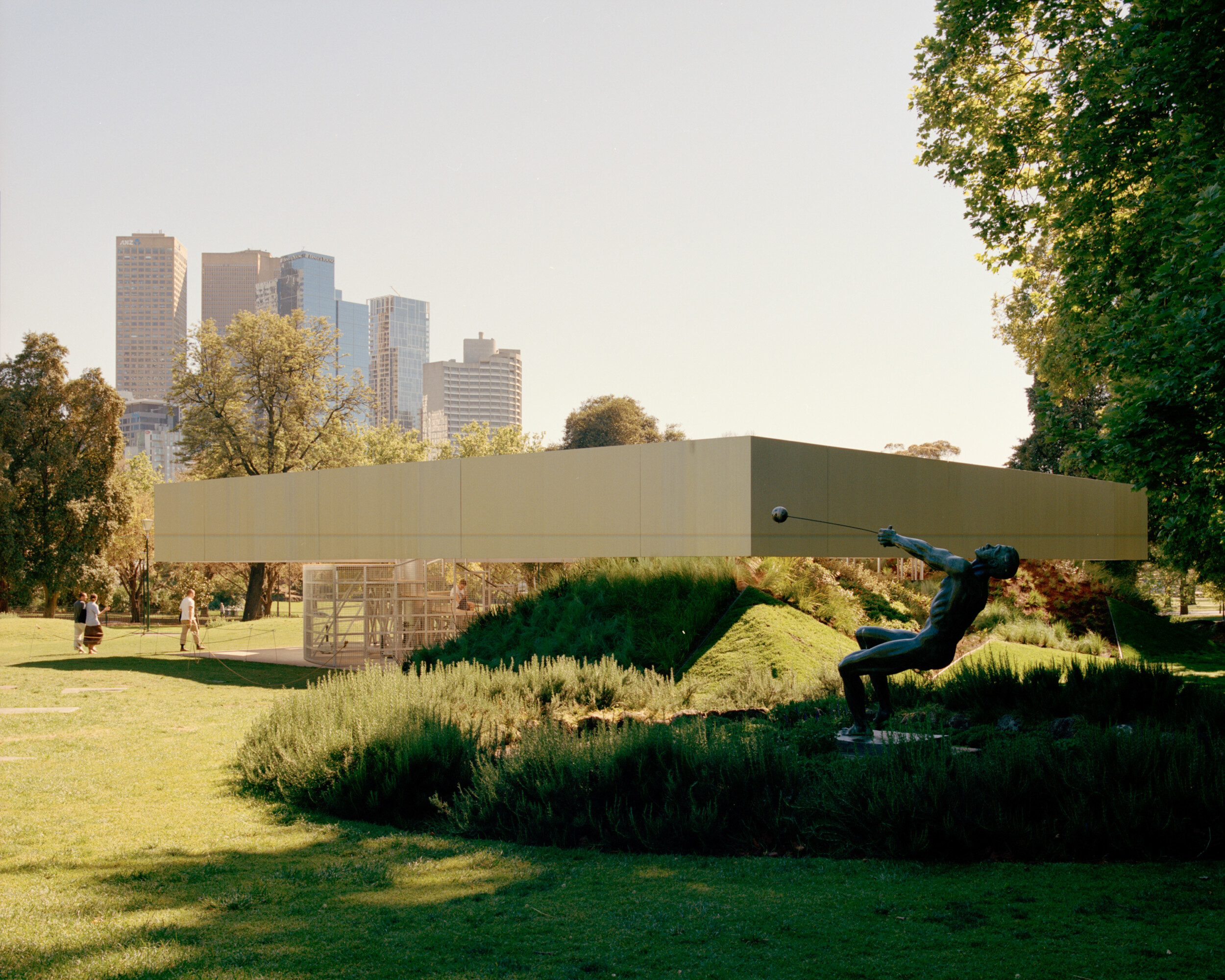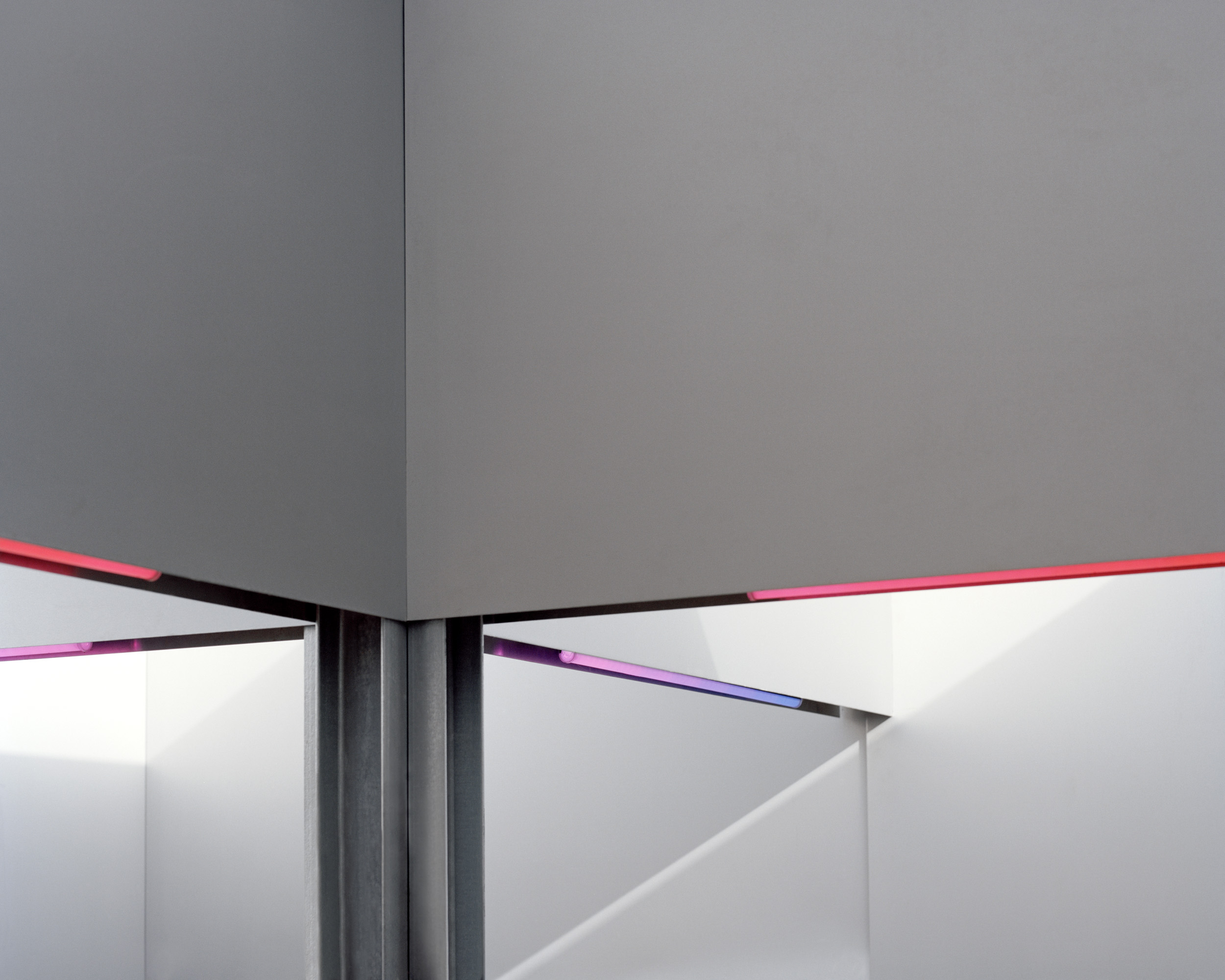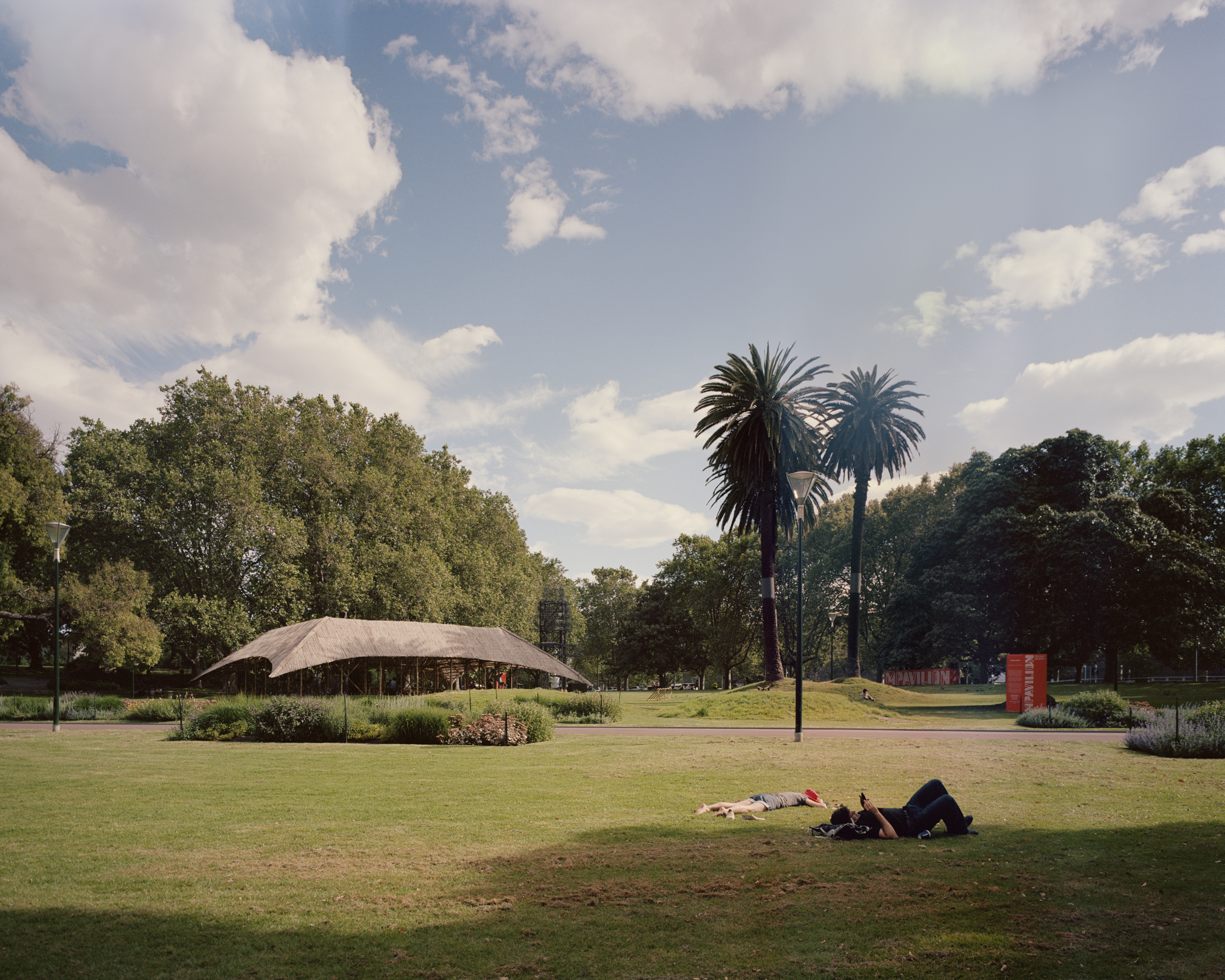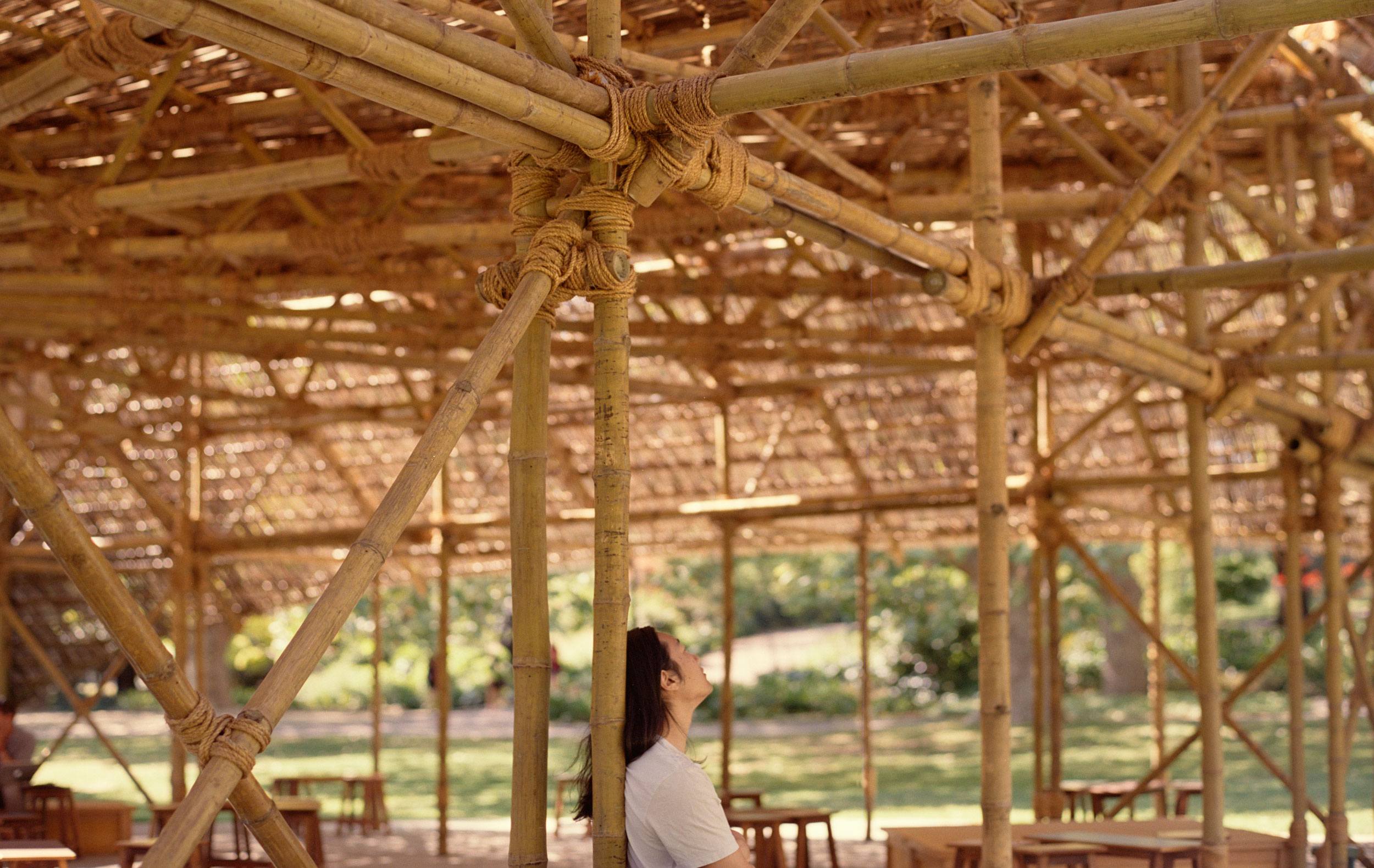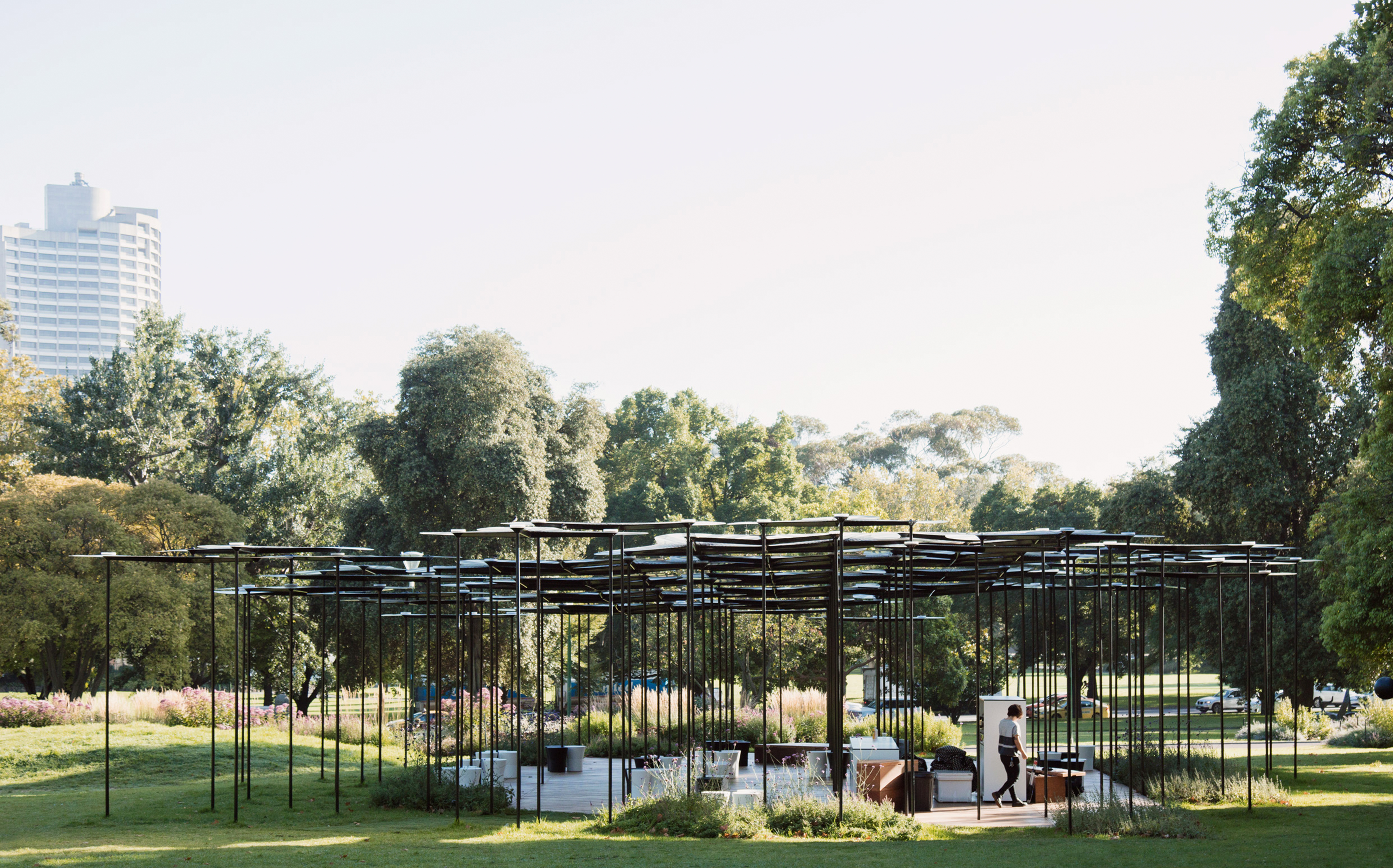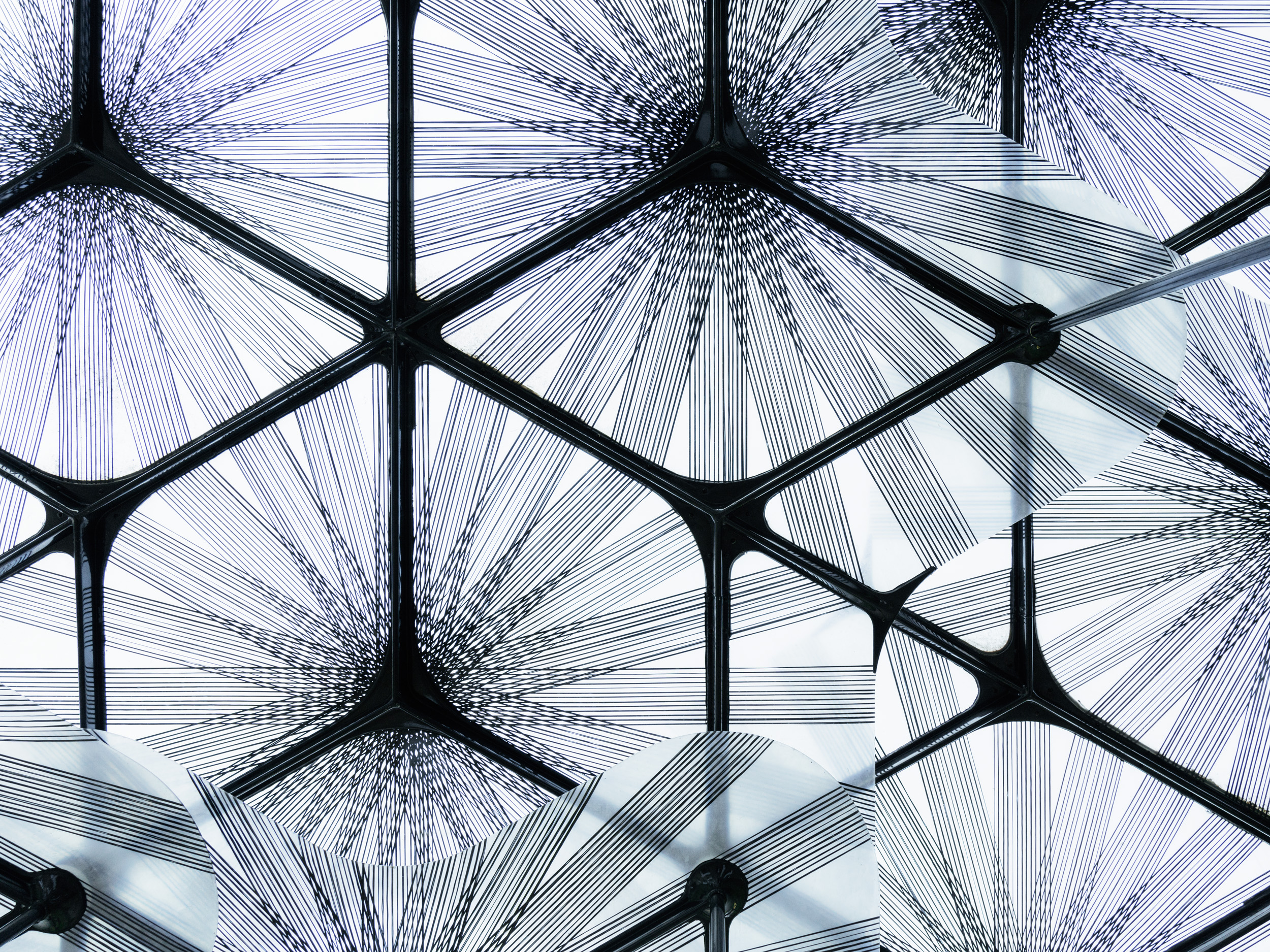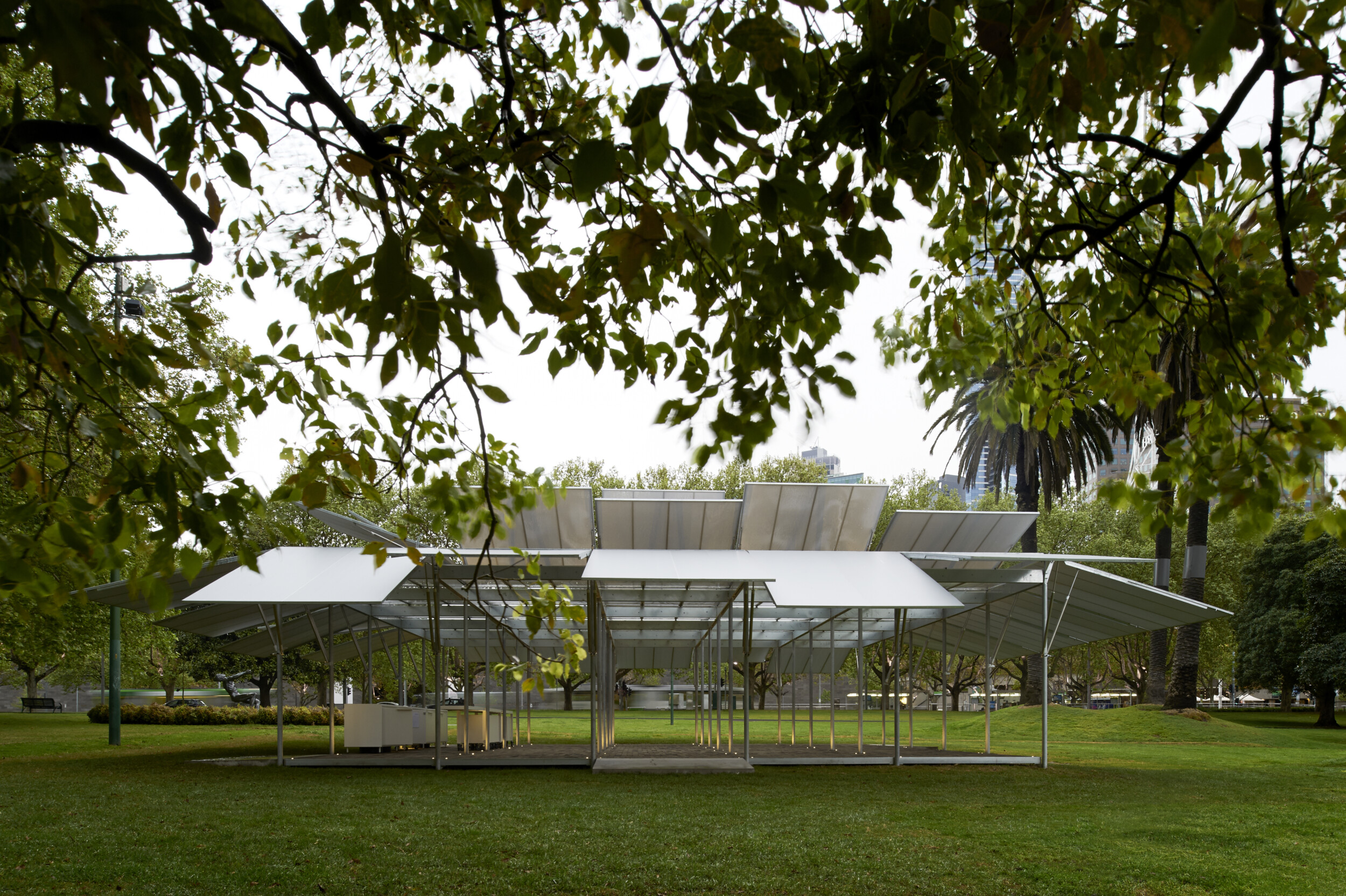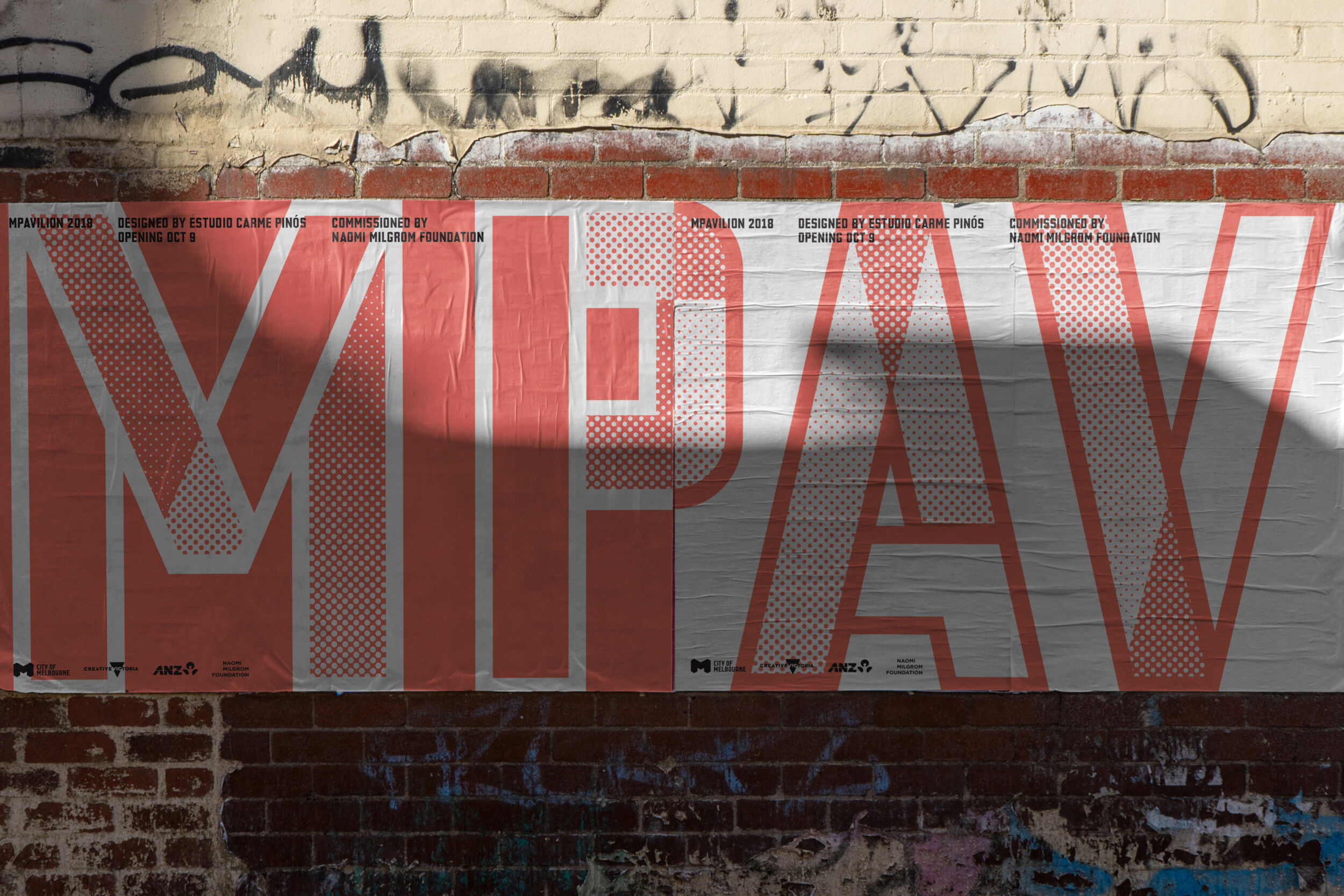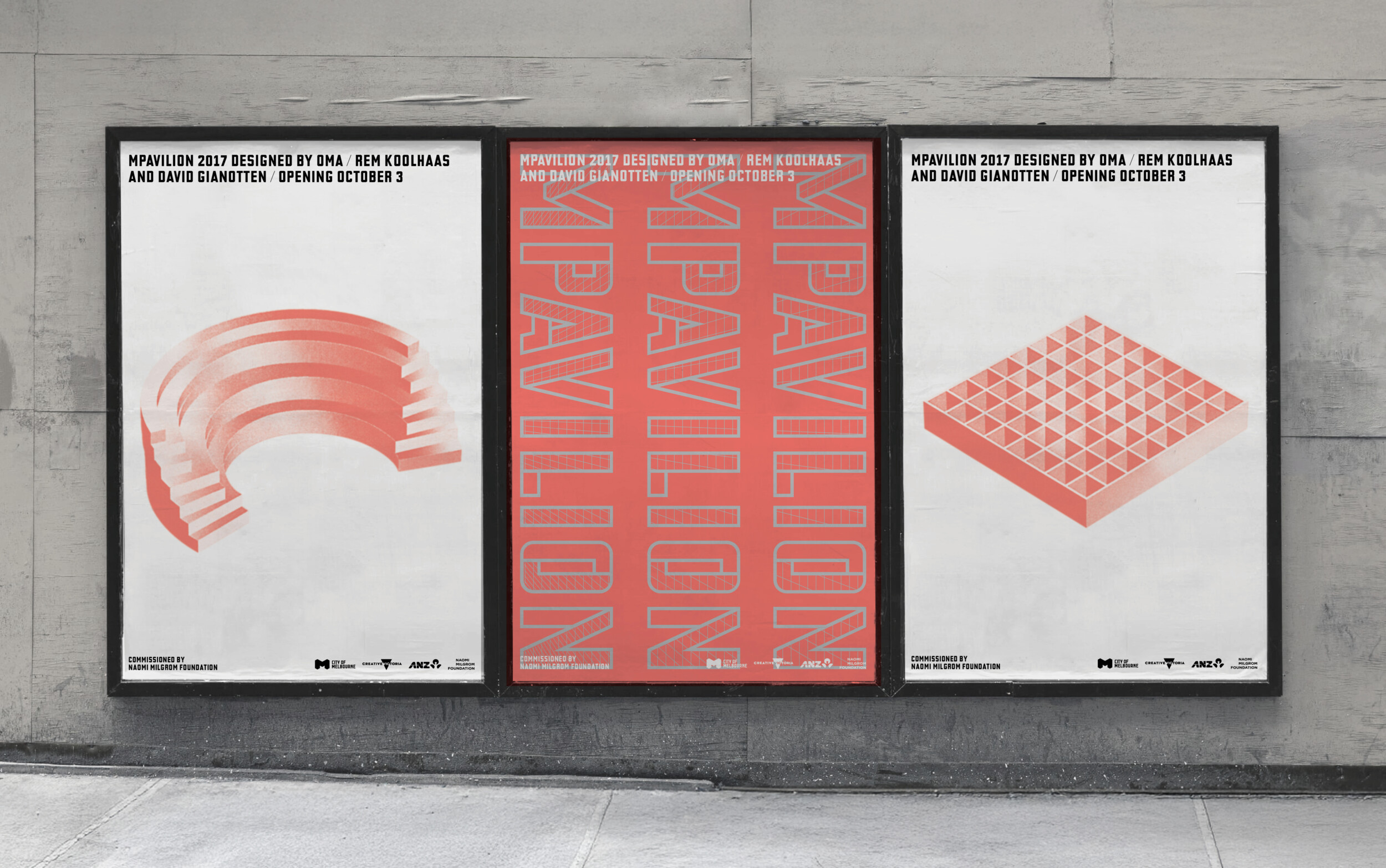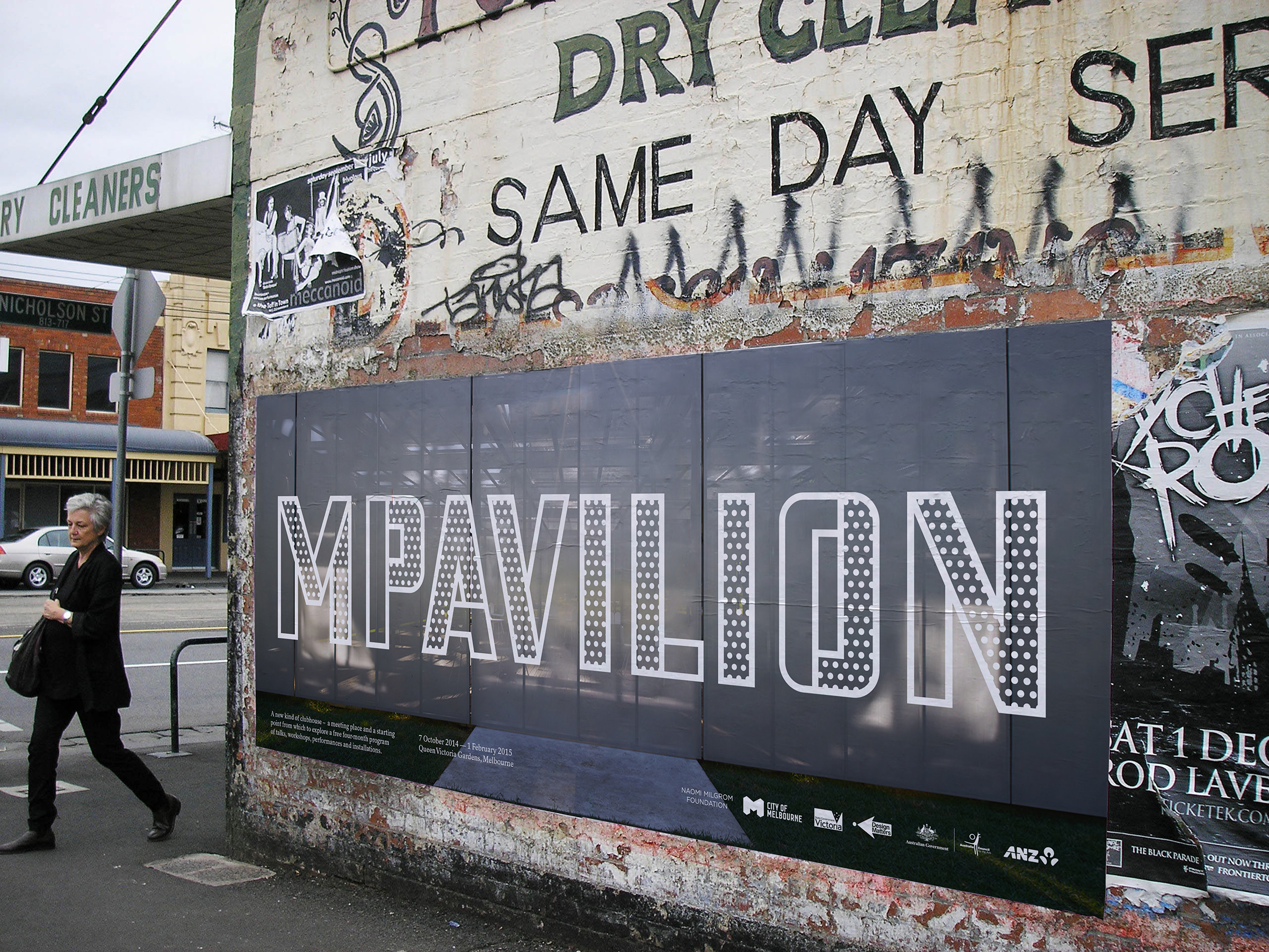(EN) MPAVILION
A container for ideas
(EN) The MPavilion typeface forms a cornerstone of the brand palette, with modular, utilitarian letterforms expressing an architectural character.
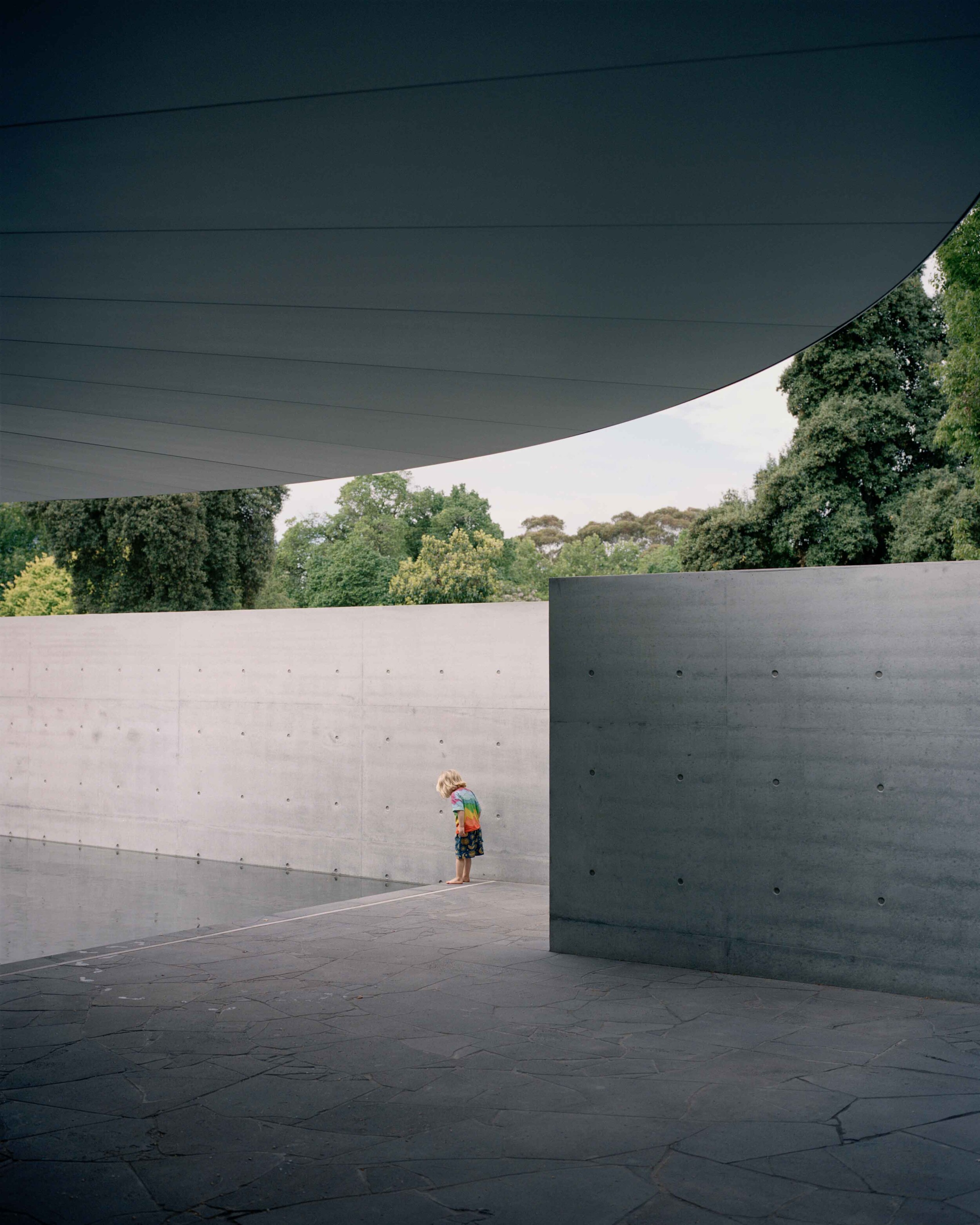
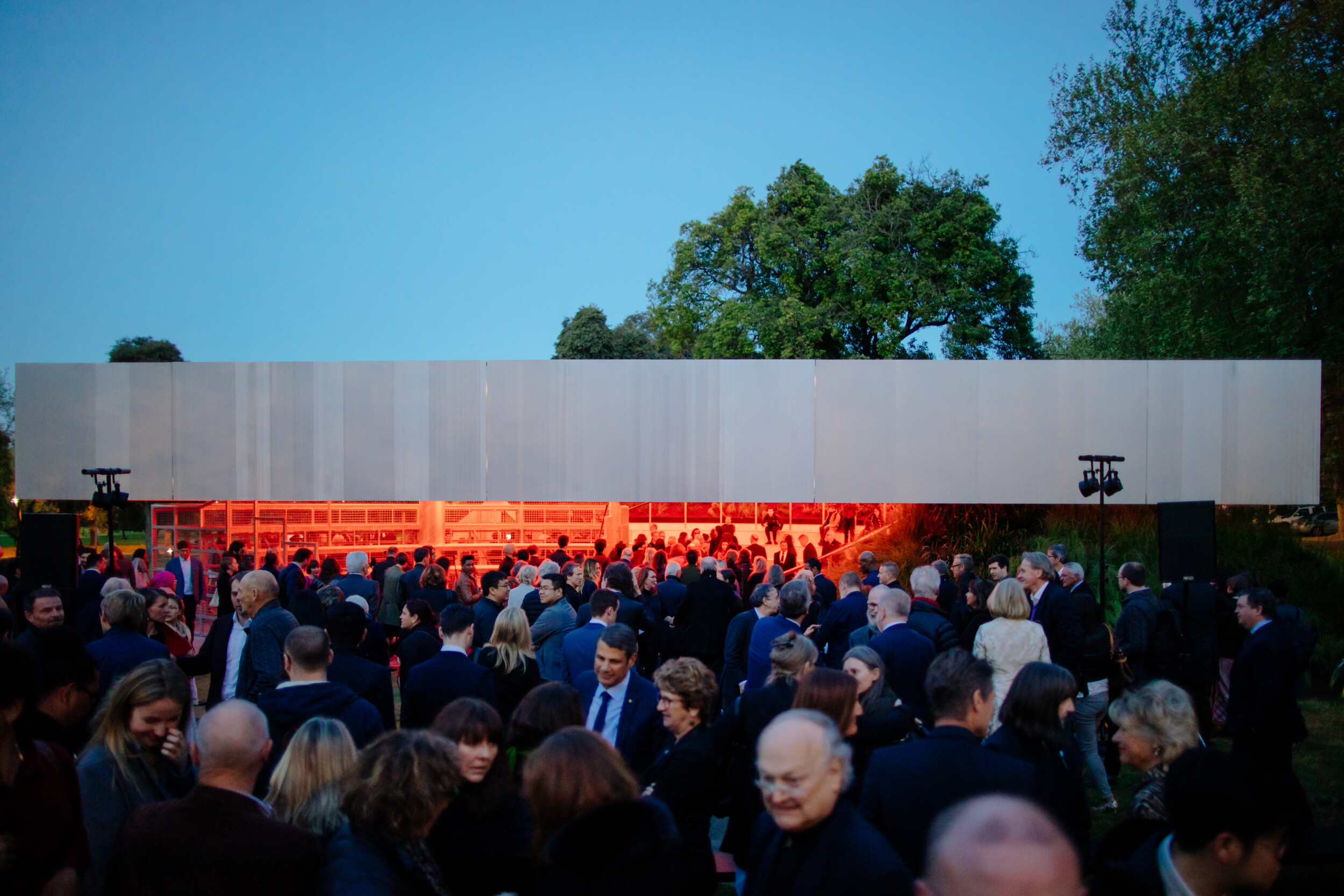
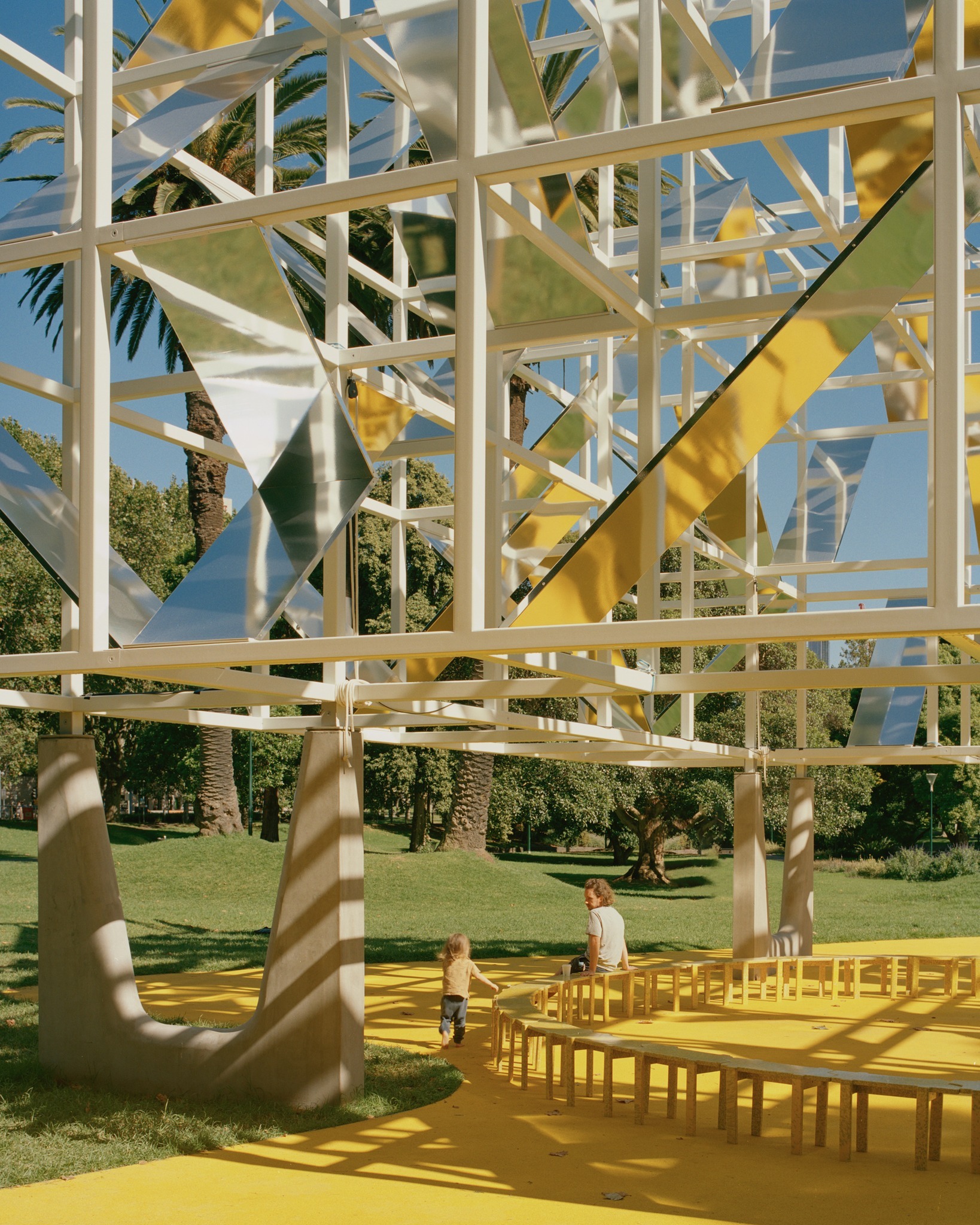
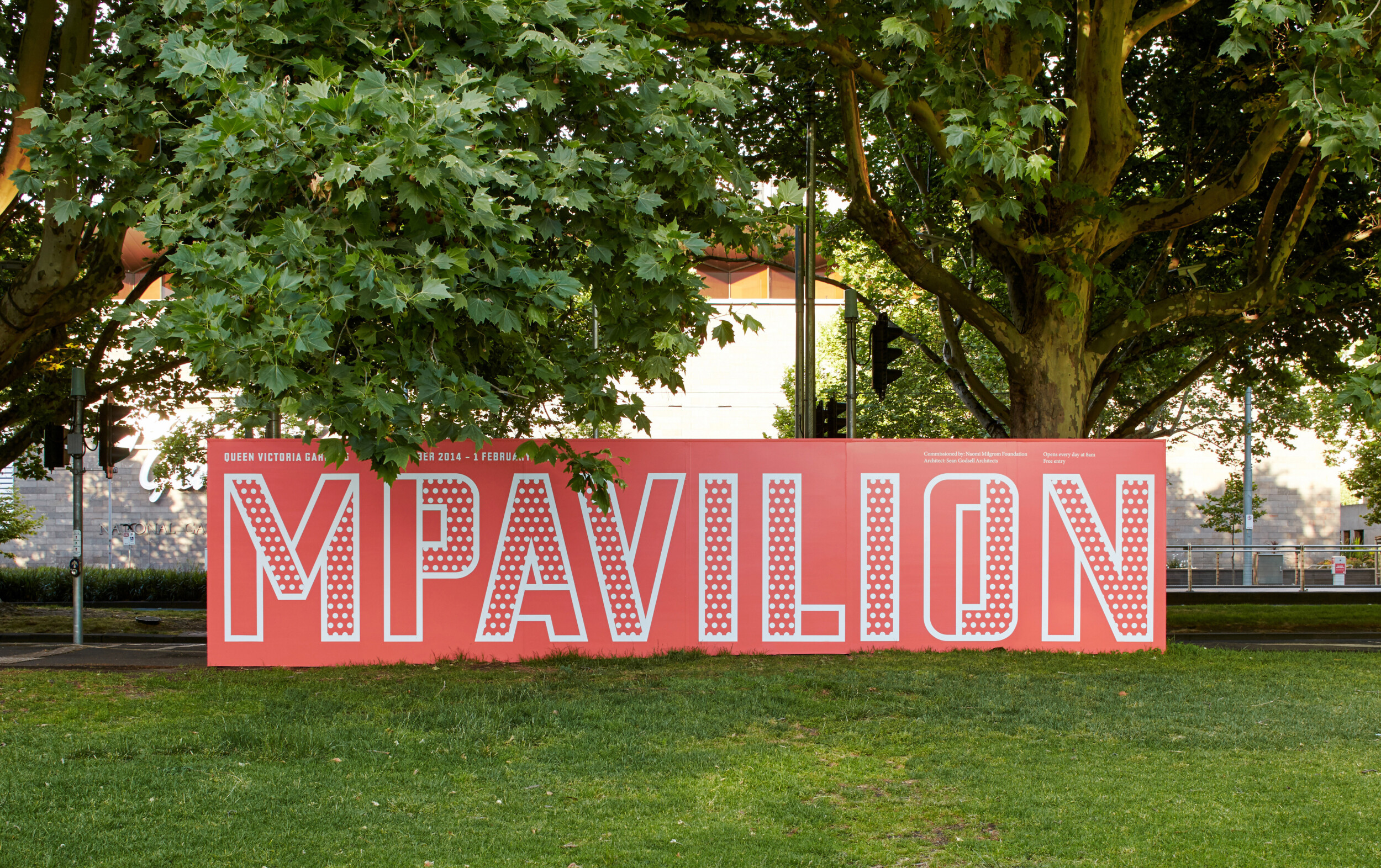
(EN) Temporary signage acts as an intervention within the garden setting, the signature colour singularly acting as a beacon while providing a canvas to showcase the program calendar.
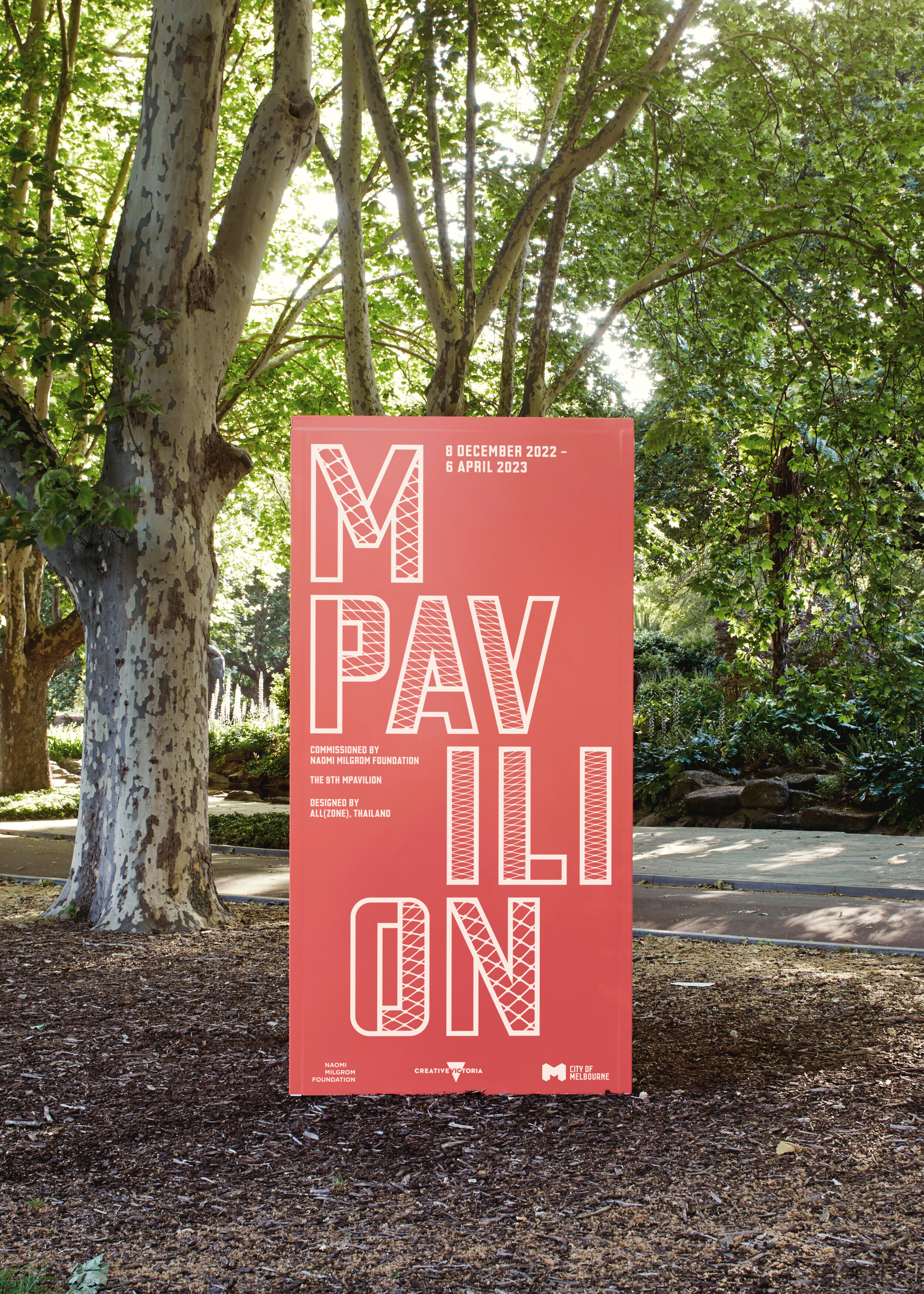
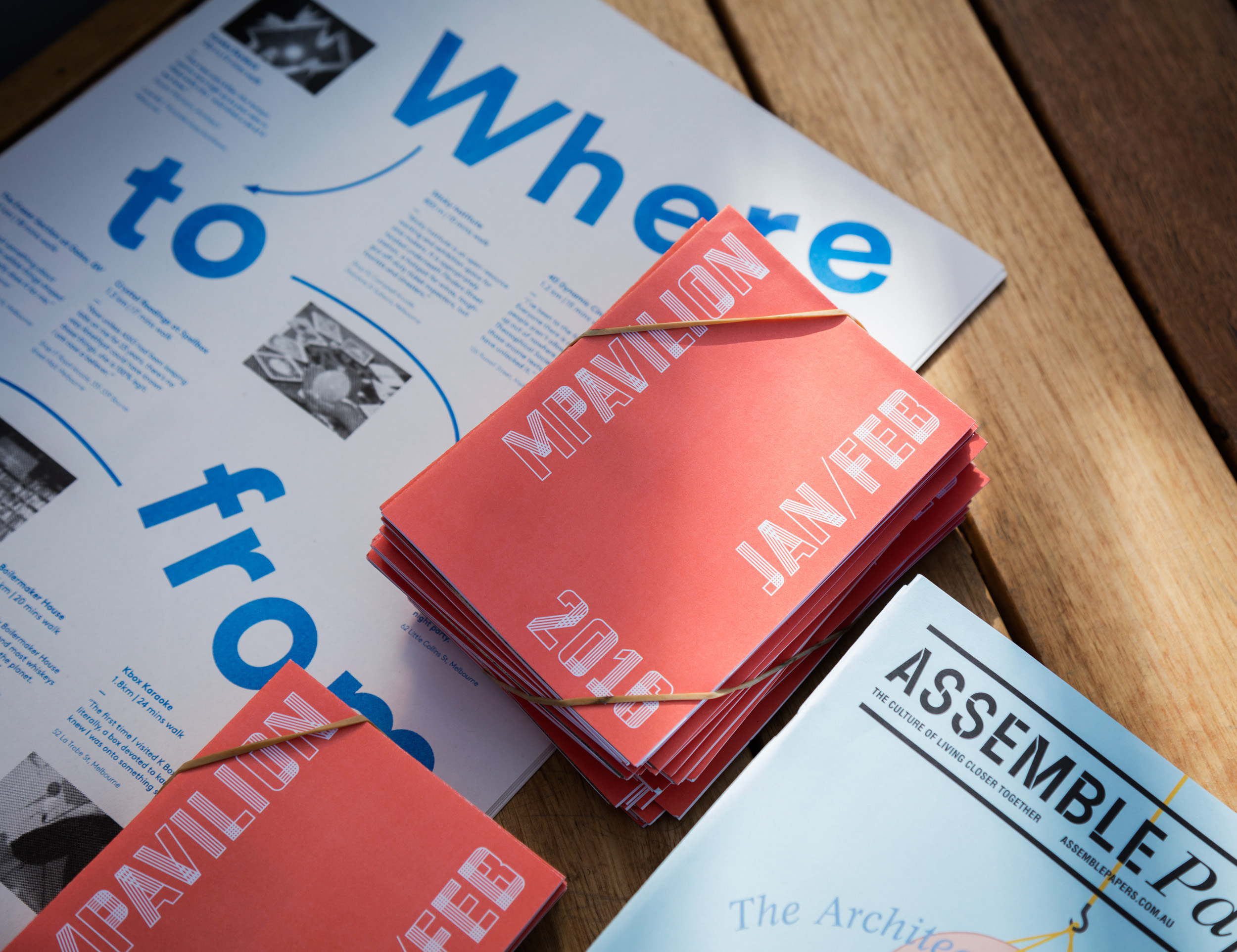
Commemorating the sixth architectural commission, the publication explores each architect's contribution from 2014 to 2019, the second lives of pavilions and the broader community of collaborators, contributors and diverse audiences engaged with the project across time.
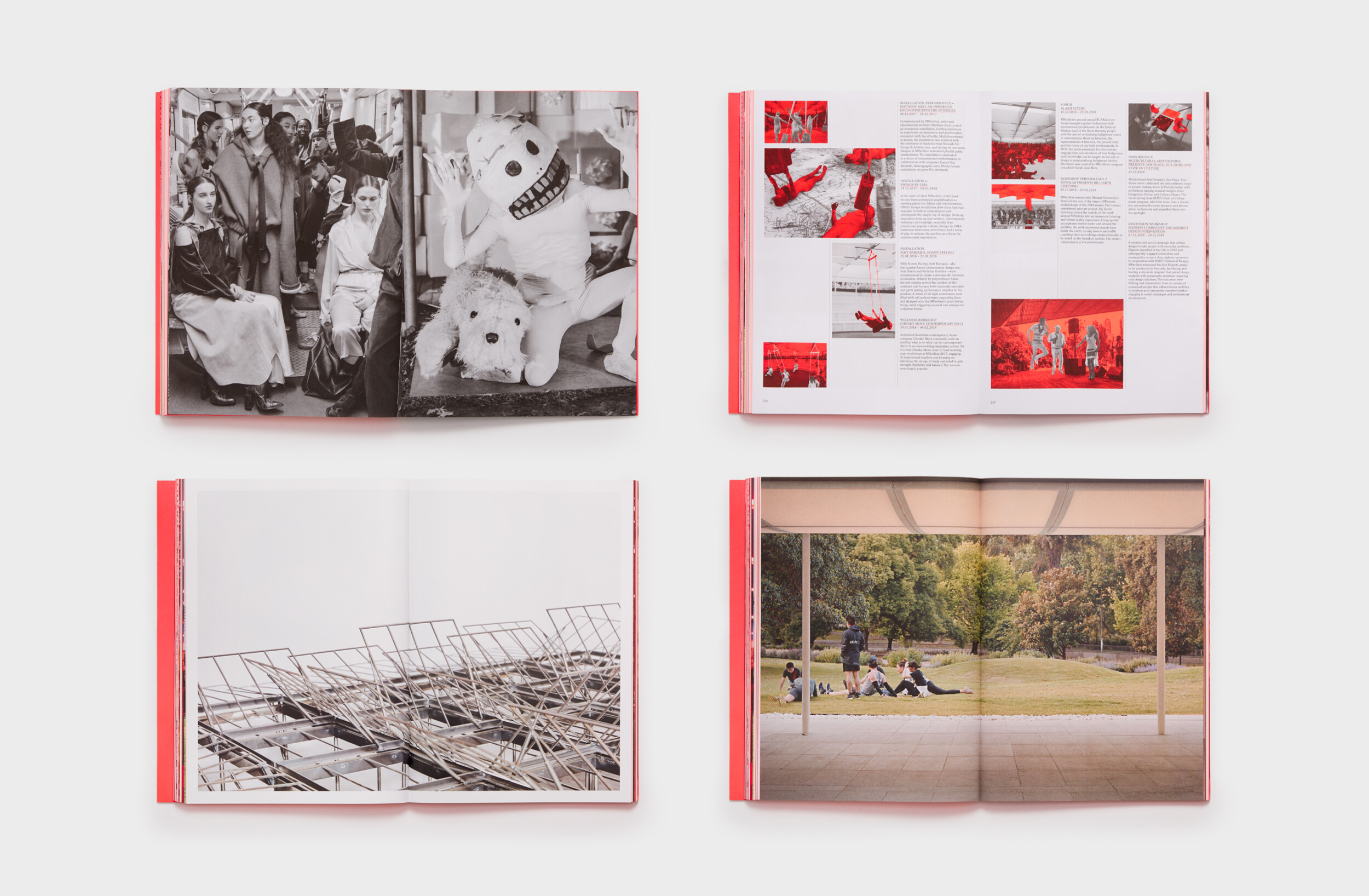
MPavilion is Australia’s leading annual architecture commission, located in Melbourne’s Queen Victoria Gardens. Established in 2014 by the Naomi Milgrom Foundation, it invites internationally renowned architects to design a temporary pavilion each spring–summer, supported by a free public program of talks, workshops, performances, and installations. Conceived as a cultural laboratory, it fosters debate on the design of today and tomorrow, and has become a vital platform for creativity, civic engagement, and cultural exchange.
Studio Ongarato was commissioned to create the name, brand identity, and program language for MPavilion. Two founding principles informed the work. The first was to unite Melbourne and the Pavilion as a single entity, supported by a distinct naming system that extends to all program activities—MMeets, MTalks, MExchange, and MKids—anchoring the initiative in the city’s cultural fabric. The second was the idea of the Pavilion as a container of ideas: a site for collaboration, creative expression, and community participation.
The identity, custom typeface and signature colour were conceived as an architectural framework—containers for content that evolve annually in response to each pavilion’s design. While the structure remains constant, the visual expression changes to reflect the form, materiality, or concept of the year’s commission. This approach ensures both continuity and renewal, mirroring the program’s architectural diversity.
The publication Encounters, Encounters with Design and architecture, extends this philosophy into print. Conceived as a hybrid between formal monograph and accessible magazine, it captures not only the architectural commissions but also the events, collaborations, and audiences that have shaped MPavilion. The title reflects the program’s essence: the meeting of design, ideas, and people.
For over a decade, MPavilion has become embedded in Melbourne’s identity—an architectural and cultural emblem that celebrates experimentation while cultivating civic pride. Through its evolving built forms and continually refreshed programming, it stands as a lasting contribution to the city’s design legacy and its place in the global conversation on architecture.
-
(EN) Project Scope
(EN) Brand Strategy
(EN) Naming Strategy
(EN) Brand Identity
(EN) Typography
(EN) Publication
(EN) Digital Design
(EN) Signage & Wayfinding
-
(EN) Architects
(EN) MPavilion 2014 Sean Godsell
(EN) MPavilion 2015 Amanda Levete
(EN) MPavilion 2016 Bijoy Jain
(EN) MPavilion 2017 Rem Koolhaas and David Gianotten
(EN) MPavilion 2018 Carme Pinós
(EN) MPavilion 2019 Glenn Murcutt
(EN) MPavilion 2021 MAP Studio
(EN) MPavilion 2022 all(zone) / Rachaporn Choochuey
(EN) MPavilion 2023 Tadao Ando
-
(EN) Photography
(EN) Peter Bennetts
(EN) Timothy Burgess
(EN) Earl Carter
(EN) John Collings
(EN) Rory Gardiner
(EN) Gavin Green
(EN) Martin Reddy
(EN) Anthony Richardson
(EN) Tom Ross
-
(EN) Other Photography
(EN) Courtesy of MPavilion
-
(EN) Renders, Sketches, Models and Drawings
(EN) MPavilion 2014 by Sean Godsell Architects
(EN) MPavilion 2015 by AL_A
(EN) MPavilion 2016 by Bijoy Jain and Studio Mumbai
(EN) MPavilion 2017 by OMA
